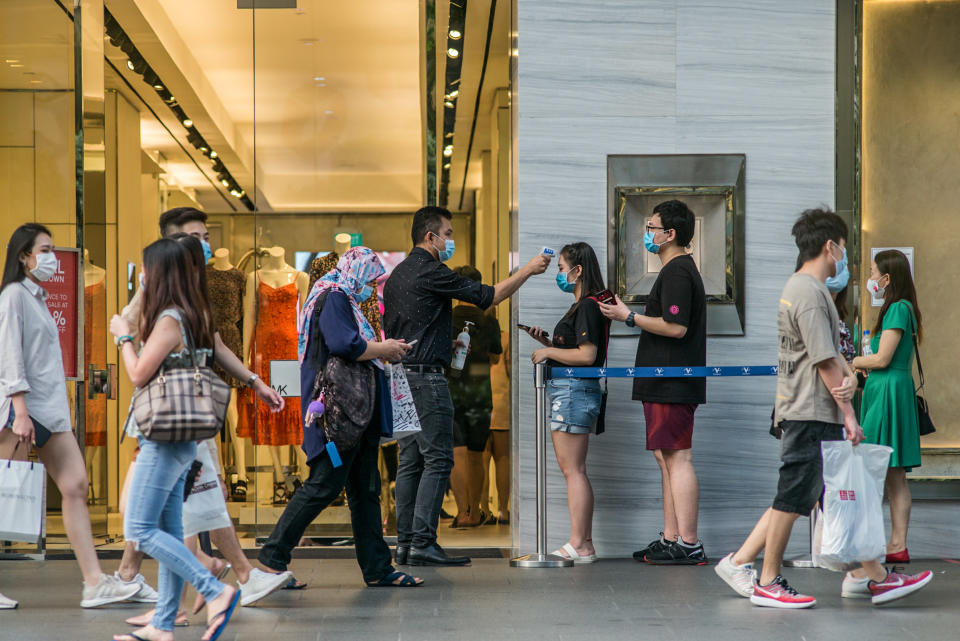Singapore could still live with virus curbs for more than a year

By Ranjeetha Pakiam, Juliette Saly and Philip J. Heijmans
(Bloomberg) -- Singapore could still be living with restrictions to curb the spread of the coronavirus for more than a year, even after it enters the next stage of pandemic easing measures as cases comes under control.
“Phase 3 is not a free-for-all,” Education Minister Lawrence Wong, who also co-chairs the city-state’s virus task force, said in a Bloomberg TV interview. “We will be in Phase 3 for quite a while because it will last until an effective vaccine or treatment is widely available.”
With daily community cases at zero for nine consecutive days so far, Singapore has been cautiously relaxing virus curbs in an attempt to open up an economy that’s highly dependent on trade and tourism, such as pushing ahead with a quarantine-free travel bubble with Hong Kong. The country, which has a total tally of over 58,000 cases, is expected to continue loosening some measures in the coming months as it eyes moving into the last phase of curbs by year-end.
This so-called Phase 3, where maximum gatherings outside homes could increase from five people to eight, will still see restrictions such as mask wearing and safe distancing. There is a chance of further easing within this stage however, depending on the availability of a vaccine and capacity for testing, Wong said.
Vaccine and the New Normal
Singapore is entering into supply agreements with several vaccine companies, and will look at trial and testing data before approving them for its population, Wong said. The aim is “to build a portfolio of vaccines, a diversified portfolio so that it will give us the best possible chance of providing safe and effective vaccines for everyone in Singapore,” he said.
Wong said groups like medical personnel, frontline workers, and vulnerable citizens including the elderly will likely be prioritised for the vaccine. Still, even once it is distributed, life is unlikely to return to the pre-Covid normal.
“Hopefully, public hygiene standards will be higher,” Wong said. “Wearing of masks may not apply to everyone, but certainly if you have a cough and cold and if you are sick, you should wear a mask and hopefully that will continue.” He also added he expects to see companies be more open to flexible work arrangements that allow staff to work from home.
The minister also downplayed the idea of so-called “vaccine passports,” suggesting that free-flow travel for those vaccinated is unlikely. “You will still need testing because a vaccine is not foolproof,” he said. “Even if a vaccine is 90% effective, how do I know you’re not among the 10% that’s not affected?”
© 2020 Bloomberg L.P.

 Yahoo Finance
Yahoo Finance 